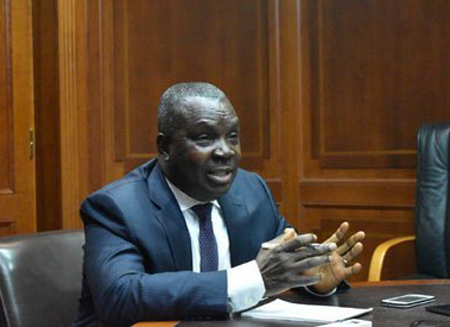…Seplat rules out threat to fossil fuel
Nigeria is lagging behind Angola, Norway and may likely be taken over by Ghana in the management of buildup of its Sovereign Wealth Fund (SWF) currently at (540 Billion) $1.5 billion.
SWF is a state-owned investment fund or entity which comprises of pools of money derived from a country’s reserves. In Nigeria, The Nigeria Sovereign Investment Authority (“NSIA” or “The Authority”) is an agency of the Federation set up to manage funds in excess of budgeted hydrocarbon revenues.
Chief Executive Officer of Seplat Petroleum Development Company Plc, Mr. Austin Avuru,stated this at the Petroleum Association of Nigeria (PETAN) workshop with the theme ‘‘ Global Energy Transformation-The Effect and Future of the African Oil Industry and Economy’’ as part of activities at the Oil Technology Conference (OTC) in Houston Texas.
Avuru said it remained worrisome that Norway with a population of about five million people and started oil production in 1971, 13 years after Nigeria, has built up its SWF about $1 trillion while Angola has edged up to $5 billion, leaving Nigeria behind with $1.5 billion.
‘‘If Norway stops producing crude oil and natural gas today, there SWF is enough to feed the country forever. That is the kind of thinking that goes into what you do with your resource wealth.’’ He affirmed.
He warned that Ghana which oil production is slightly higher than that of Seplat Petroleum has already built close to $500 million in SWF over a short period of oil production
‘‘If Ghana continue along the path they are going, and they produce for about 30 years, which is half of the number of years we have carried out oil production, they would probably have a SWF that will be half of their GDP in size.’’
He equally alluded to what other countries are also doing with their oil wealth, saying the new King in Saudi Arabia is turning the oil and gas industry into a catalyst for more sustainable economic growth.
On the perceived threat to fossil fuel, the Seplat CEO said, up to 2040, fossil fuel will account for 53 per cent of the world energy demand.
‘‘What we are seeing is a gradual decline in the total contribution of fossil fuel to the energy mix over time. It is not an overnight elimination of fossil fuel.
So as we move beyond 2030, 2040 and 2050, the energy mix will continue to be guided by availability, commercial consideration; which means, even for fossil fuels, you will pay attention to cost because fossil fuel will have to be able to compete, the same way renewable will have to be able to compete.
Somebody said earlier, that the cost of renewable has reduced by 60 per cent over the last 15 years. So the same way you have to be competitive in the cost of production of fossil fuel, so that the cost is driven to the barest minimum, the same way the cost of renewable will have to be driven down to be able to compete.’’
He explained that, what is happening today is a gradual transformation that should not be seen as a curse but as a solution that is being provided to the world, that by the time we get to the point of decline in the supply of fossil fuel, there will be alternatives to fill the vaccum.
He warned that, if the demand for energy versus supply continues to widen without nothing been done about oil and gas, then the gap over a 20 year period will lead to a catastrophe.
‘‘So, the point I am making and the point to take home is that there is no gang up by the world to make fossil fuel irrelevant. What the world is doing, is to start in a timely fashion to develop the alternatives that must come when fossil fuel delivery in the world energy mix starts to decline.




